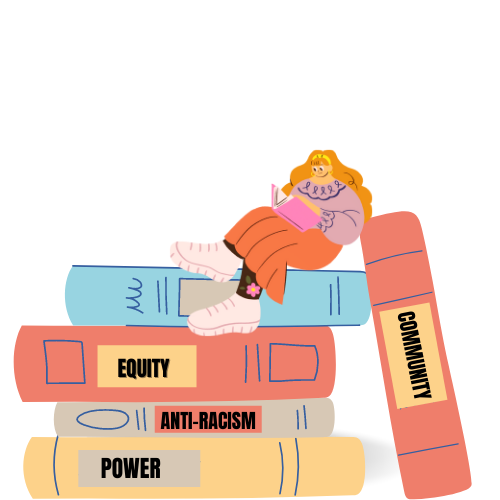On Jan. 18, the President’s Anti-Racism Taskforce (PART) held its monthly session of their anti-racism book club. PART launched the book club in July 2021, with the aim of discussing race, culture and ethnicity through a different book every month. Last week’s conversation was led by Tracelyn Cornelius, the anti-racism communications manager for University Relations.
PART itself was created in June 2020, under the leadership of former president Feridun Hamdullahpur, who stated in a letter to the UW community, “It is clear to me now … that we must build further on what we’ve been doing as a University to advance equity for Black, Indigenous and People of Colour.” PART’s mission is far-reaching, as the taskforce aims to “weave anti-racism into the fabric and culture of all campus operations, communities, pedagogy and lifestyle.”
During the recent session, the attendees discussed Desmond Cole’s book The Skin We’re In: A Year of Black Resistance and Power. Cole is a Canadian activist and journalist, and his book recounts his experiences and observations on racism in Canada by following the events of 2017. Cole urges Canadians not to see their country as above or beyond racism, and has stressed that we should “commit to not being surprised by the constant climate of anti-Blackness and white supremacy that is always around us.”
In an interview with Imprint, Cornelius stated that she resonated with this book as a former journalist herself, and said “a lot of what I’ve been through aligns with what Desmond Cole has gone through.”
Cole has spoken out against the performative activism that universities and colleges often take part in, stating in a Q&A session with Sheridan College that “if our institutions want to say they recognize the need to talk about Blackness … it [should] not be in many of these superficial ways that we are seeing, [and] it has to be substantive. It has to be led by those who are experiencing anti-Blackness, and it has to be transformative.”
He emphasized the need to abolish campus security and police to redirect that money into helping Black and Indigenous People of Color (BIPOC) members of campus, and went on to say that “making a committee that has no power to influence what happens day-to-day at the school and putting a few Black and brown faces on it — that is not the change that we’re looking for.”
When asked about Jan. 18’s book club session, Cornelius said she really enjoyed it. “There were both racialized and white members of our community talking together, sharing experiences … and tangible things that can be done to help to build an anti-racist community.” She went on to say that words had to be accompanied by tangible actions, and that “the discussion yesterday was quite engaging and did a lot just to start the conversation,” which she thought would help people become aware of what other races are going through and how to become good allies.
When asked about Cole’s criticisms, Cornelius said she believes PART goes beyond the optical activism that Cole condemns. “[PART] is really aligning with what Cole is saying because it’s not just giving racialized people a voice, but is ensuring that people who have the power to affect change are involved in it and are doing it.” She added that Charmaine Dean, the executive designate of PART, is a racialized person with significant power and authority within the university.
Cornelius also stated that, although in her opinion PART has the buy-in of higher-ups at UW, this isn’t the full solution. “Even if senior leaders say … we want to build an anti-racist community, it’s the entire community that has to come together to ensure that this happens,” she said.
The book club is one way for the campus community to do that. Cornelius continued on to say that having meaningful conversations where the community can learn, build awareness and talk about solutions is a goal of the book club and explained that books can give the community access they wouldn’t otherwise have to the experiences and thoughts of authors like Cole.
PART’s five working groups are each generating recommendations around ways the university can improve in a variety of fields, including training campus security in anti-racism and de-escalation, bringing BIPOC voices and research into curricula, providing BIPOC mental health resources, and improving professional and academic opportunities for BIPOC staff, faculty and students.
PART also has three implementation teams that are taking more immediate steps to increase BIPOC representation on campus, host cultural, ethnic, and racial awareness events, and develop programming focused on the Black experience. According to PART, actions have already been taken in each of these areas, including the safe collection and use of race-based data to address representation on campus, work towards hiring Black and Indigenous faculty members, a Black Studies Program that will begin in September 2022 and a proposal for Indigenous spaces on campus.
More information about PART and the full reading list for the anti-racism book club can be found at uwaterloo.ca/anti-racism.






























